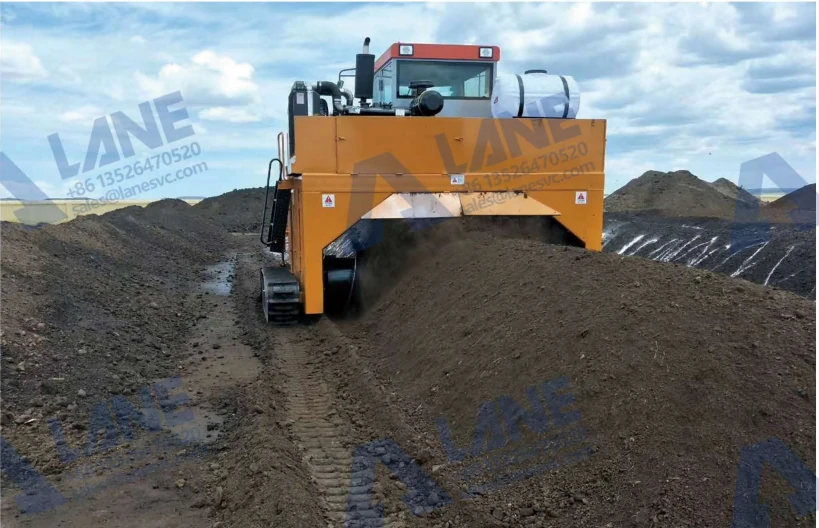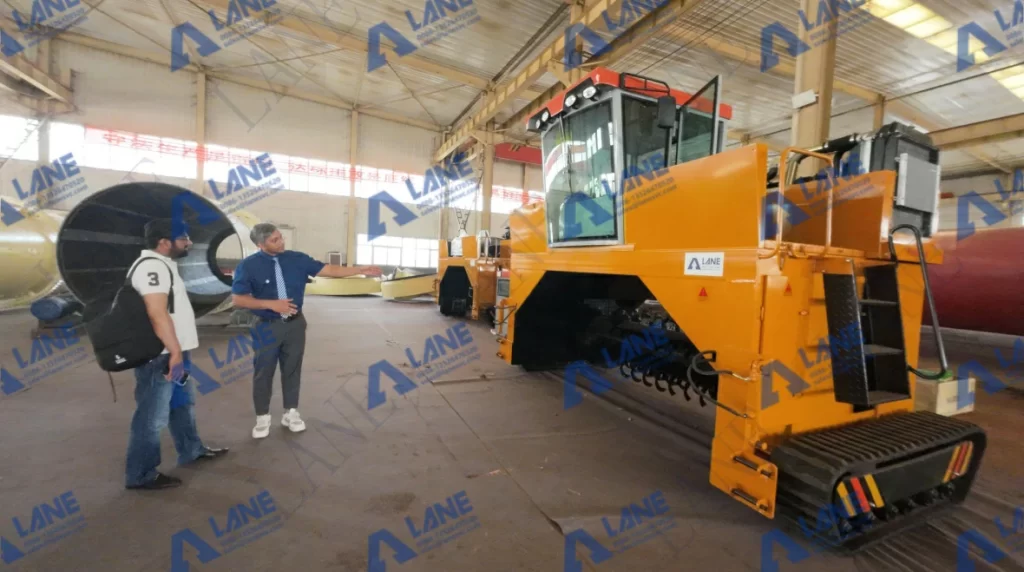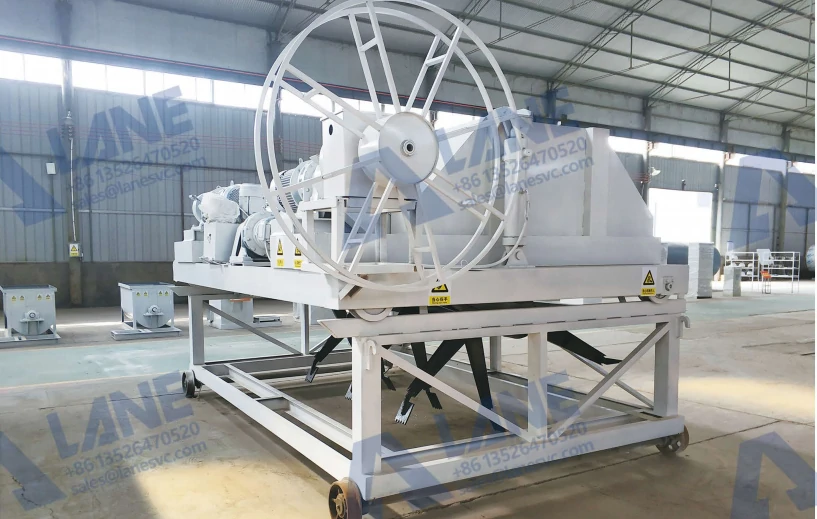In response to the increasing environmental issues and the promotion of sustainable agriculture, fast composting production line technology has become a key solution for converting organic waste into high-quality fertilizers more quickly and efficiently. The traditional composting method may take several months to complete, but the adoption of advanced composting systems can accelerate the entire process, thereby shortening the turnaround time and improving production controllability. This article explores the working principle of the fast composting production line technology, the equipment involved, and how enterprises can utilize it to enhance productivity and environmental sustainability.

Understanding Fast Composting Production Line Technology
Fast composting production line technology refers to a set of advanced machinery and systems designed to accelerate the natural composting process. This technology optimizes key factors like aeration, moisture, temperature, and mixing frequency, ensuring rapid decomposition of organic materials such as manure, crop residues, and food waste. By reducing the composting time from several months to weeks (or even days), this technology supports the sustainable use of organic waste, reduces landfill dependency, and produces high-quality fertilizers for agricultural use.
The Composting Process: A Step-by-Step Breakdown
The composting process involves a series of steps that transform organic waste into nutrient-rich compost, but with the fast composting production line technology, these steps are carried out much more quickly and efficiently. Let’s take a closer look at the entire composting workflow.
1.Collection and Pre-Processing of Organic Waste
The first step in the composting process is the collection of raw materials. This can include a variety of organic waste products like manure, crop residues, food scraps, and yard waste. To ensure efficient composting, these materials must be pre-processed to break them down into smaller pieces.
Crushers: Vertical shaft crushers or hammer crushers are used to reduce large organic materials into smaller, uniform particles, which accelerates the composting process. This ensures that the organic matter decomposes uniformly.
2.Forming the Compost Pile
Once the organic materials are pre-processed, they are arranged into compost piles (or windrows). These piles must be regularly turned to ensure proper aeration, which is crucial for maintaining aerobic conditions and facilitating rapid decomposition.
Crawler Type Compost Turner: The crawler type compost turner is ideal for large-scale composting. This machine turns the compost piles, ensuring that oxygen is evenly distributed throughout the material, which is critical for speeding up the decomposition process.

3.Aeration and Mixing
Proper aeration is the key to accelerating composting. The compost pile needs to be turned regularly to allow airflow and prevent anaerobic conditions, which can slow down the process and cause foul odors.
Groove Type Compost Turner: For composting in grooves or channels, the groove type compost turner is used to efficiently turn and mix the material. This helps maintain consistent airflow, regulates temperature, and ensures that the decomposition process occurs uniformly.

4.Fermentation and Temperature Control
Temperature control is critical in the composting process. The ideal temperature range for composting is between 55-65°C, which encourages the growth of beneficial microorganisms that break down organic matter efficiently.
Vertical Fermentation Tank: A vertical fermentation tank is used to maintain stable temperatures and moisture levels throughout the fermentation process. This closed-system tank allows for controlled composting, which can reduce fermentation time significantly while ensuring high-quality output.
5.Granulation and Pelletizing Process
Once the composting process is completed, the next step is to enhance the product’s quality by turning it into pellets or granules. This is where granulation and pelletizing machines come into play.
Granulation Machine: The organic compost is then fed into a stirring pin granulator where it is shaped into pellets or granules. This process improves the uniformity of the compost and makes it easier to handle, transport, and apply in agricultural fields. For further refinement, the compost is processed in a pelletizing machine to achieve uniform size and shape, ensuring optimal nutrient release and easy application.
Polishing Machine: After granulation, the pellets often undergo polishing with a pellet polishing machine to smooth the surface, improving their appearance and reducing dust. This makes the final product more marketable.
6.Packaging the Finished Product
After the granulation and polishing process, the finished compost pellets or granules are ready for packaging.
Packing Machine: The packing machine is used to pack the final product into bags for distribution. Depending on the required packaging size, the machine can fill bags with a specific amount of product, ensuring consistent weight and easy handling.
Benefits of Fast Composting Production Line Technology
1.Faster Turnaround Times
One of the most significant benefits of using fast composting production line technology is the drastic reduction in composting time. Traditional composting methods often take several months to complete, whereas advanced production lines can turn organic waste into nutrient-rich compost within weeks, or even days. This improvement in speed allows businesses to process larger volumes of organic waste within a short period, increasing their overall productivity and profitability.
2.Higher Quality Compost
With better control over factors like temperature, moisture, and aeration, fast composting production line technology ensures that the compost produced is of superior quality. The controlled environment of systems like the vertical fermentation tank ensures optimal conditions for microbial activity, resulting in compost with higher nutrient levels that are more effective as a fertilizer. This improves soil health and plant growth, providing farmers with a product that enhances crop yields.
3.Reduced Environmental Impact
Composting is an environmentally friendly process by itself, but fast composting production line technology takes this a step further by reducing the amount of organic waste that ends up in landfills. By converting organic materials into compost efficiently, it helps divert large amounts of waste from the waste stream, contributing to cleaner landfills and a reduction in methane emissions. Additionally, the compost produced enriches soil, improving its carbon storage capacity.
4.Enhanced Product Consistency
One of the challenges in traditional composting methods is the inconsistency in the final product, often due to irregular mixing and aeration. With advanced systems like the groove type compost turner, the composting process becomes more uniform, ensuring that every batch of compost is consistent in texture, moisture content, and nutrient composition. This reliability is vital for customers who require consistent fertilizer quality, such as large-scale farms or landscaping businesses.
Why LANE’s Fast Composting Production Line Technology Stands Out
1.Innovative Engineering and Design
LANE’s fast composting production line technology stands out due to its combination of cutting-edge engineering and innovative design. Our machines are designed for efficiency, durability, and ease of operation. From the crawler type compost turner that ensures even aeration of compost piles to the vertical fermentation tank that optimizes fermentation conditions, LANE’s technology offers the perfect balance between speed, quality, and sustainability.
2.Tailored Solutions for Diverse Needs
At LANE, we understand that each composting operation has unique requirements. Whether you’re processing manure, agricultural waste, or food scraps, our team can design and implement a customized composting solution that aligns with your specific goals. With our vast experience and expertise, we work closely with clients to ensure that every detail—from machine specifications to workflow optimization—is perfectly suited to their needs.
3.Global Support and After-Sales Service
We don’t just provide equipment; we provide a partnership. LANE’s after-sales support is unparalleled in the industry. From on-site installation to operator training and ongoing maintenance, our expert team is committed to helping clients get the most out of their investment. We provide technical support globally, ensuring that all our systems remain in top working condition for years to come.
4.Energy Efficiency and Sustainability
Sustainability is at the heart of LANE’s fast composting production line technology. Our systems are engineered to minimize energy consumption and reduce waste generation. By investing in LANE’s technology, clients contribute to sustainable agriculture while achieving higher yields with less environmental impact. Our systems also come with features that reduce noise pollution, making them suitable for urban and rural settings alike.
5.Reliability and Durability
LANE’s fast composting production lines are designed to withstand harsh conditions and continuous operation. Built with high-quality materials and backed by extensive testing, our equipment delivers reliable performance year after year. Clients can depend on our machines to operate efficiently, even in demanding environments.
The Future of Fast Composting Production Line Technology
The future of fast composting production line technology is moving toward greater automation, real-time monitoring, and smarter technology. As global demand for organic fertilizers grows, there will be an increasing need for composting systems that are not only efficient but also intelligent.
LANE is already looking ahead to these trends. We are developing smart composting solutions that incorporate AI-powered monitoring to track key variables such as temperature, moisture, and oxygen levels in real-time. This technology will allow operators to adjust conditions remotely and ensure optimal composting conditions throughout the process.
Additionally, as more companies move toward circular economy models, LANE is working to integrate composting with other waste-to-resource systems, further advancing sustainability in agriculture and waste management.
For more details, please feel free to contact us.
Henan Lane Heavy Industry Machinery Technology Co., Ltd.
Email: sales@lanesvc.com
Contact number: +86 13526470520
Whatsapp: +86 13526470520